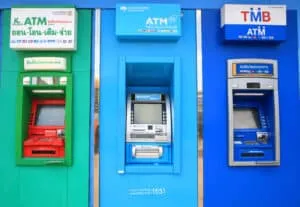Is It Easy To Open Another Bank Account In Another Country

Opening a bank account in another country might seem like a daunting task, but it’s becoming increasingly common in our interconnected world. Many individuals find themselves in need of financial services beyond the UK borders. Whether it’s for frequent travel, overseas investments or simply to facilitate transactions in a different currency, the option to open a bank account abroad can be extremely beneficial in the US, Spain, Portugal or Dubai. But is it easy? Let’s explore some key considerations.
How Do I Open an Account Abroad?
Opening a bank account in another country typically involves several steps, but it’s not necessarily overly complex. Many banks offer expat services or accounts for non-residents, simplifying the process.
Generally, you’ll need to provide identification documents, proof of address and possibly a reference from your current bank. Some countries may also require additional documentation (such as the purpose of the account, source of funds or compliance documents) or have specific regulations for non-resident accounts.
Will I Be Charged to Have a Bank Account in Another Country?
Fees associated with opening and maintaining a bank account abroad can vary widely depending on the country and financial institution. Some banks may charge account opening fees, monthly maintenance fees and transaction fees, especially for international transfers or currency exchange.
One crucial aspect to consider when opening a bank account abroad is the tax implications. Income earned or held in foreign accounts may still be subject to taxation in your home country. In the UK, for example, residents are required to declare all worldwide income to HM Revenue & Customs, regardless of where it’s earned or held.
Failure to declare income from foreign accounts can result in severe consequences, including penalties, fines and even criminal prosecution. HMRC has implemented various measures to combat tax evasion and ensure compliance, such as information exchange agreements with other countries and enhanced scrutiny of offshore financial activities.
Therefore, it’s essential to understand your tax obligations and ensure full compliance when opening a bank account in another country.
What Are the Advantages and Disadvantages?
Opening a bank account in another country offers several advantages, such as easier access to funds while traveling, diversification of assets, and the ability to hold multiple currencies. In fact, if you are really looking to set up a life in another country, you could need a bank account to get access to local financial products including mortgages, credit cards and even loans.
Additionally, it can simplify financial transactions in foreign countries and provide a sense of security in case of emergencies or political instability at home. Certainly if you are running a business abroad, having a bank account will be essential.
However, there are also potential disadvantages to consider. These may include language barriers, unfamiliar banking practices and the risk of currency fluctuations affecting account value.
Some countries also have stringent reporting requirements for foreign account holders, which could lead to additional paperwork and compliance obligations.
Is It Safe To Have My Money In An Account Abroad?
Safety is a primary concern when opening a bank account abroad. While reputable banks in stable jurisdictions generally offer a high level of security, it’s essential to research the financial stability and regulatory environment of the country in question.
Look for banks that are insured by a credible deposit insurance scheme and have robust security measures in place to protect your funds.
What Do I Need to Consider When Opening a Bank Account in Another Country?
Before opening a bank account in another country, consider the following factors:
- Research the banking regulations and legal requirements in the country where you plan to open an account.
- Determine whether you need a multi-currency account or if a local currency account will suffice.
- Compare the fee structures of different banks to minimise costs.
- Choose a bank with accessible branches or online banking options that suit your needs.
- Ensure the bank is reputable and operates within a stable regulatory framework.
While opening a bank account in another country requires careful consideration and planning, it’s certainly achievable with the right approach. Whether for convenience, investment opportunities or international travel, having a bank account abroad can offer valuable benefits in today’s globalised world.
Here are some related articles you may find useful:
5 Essential Financial Moves For Expats Before Moving Abroad
7 Tips to Ensure Your Money Will Stay Safe When Living Abroad